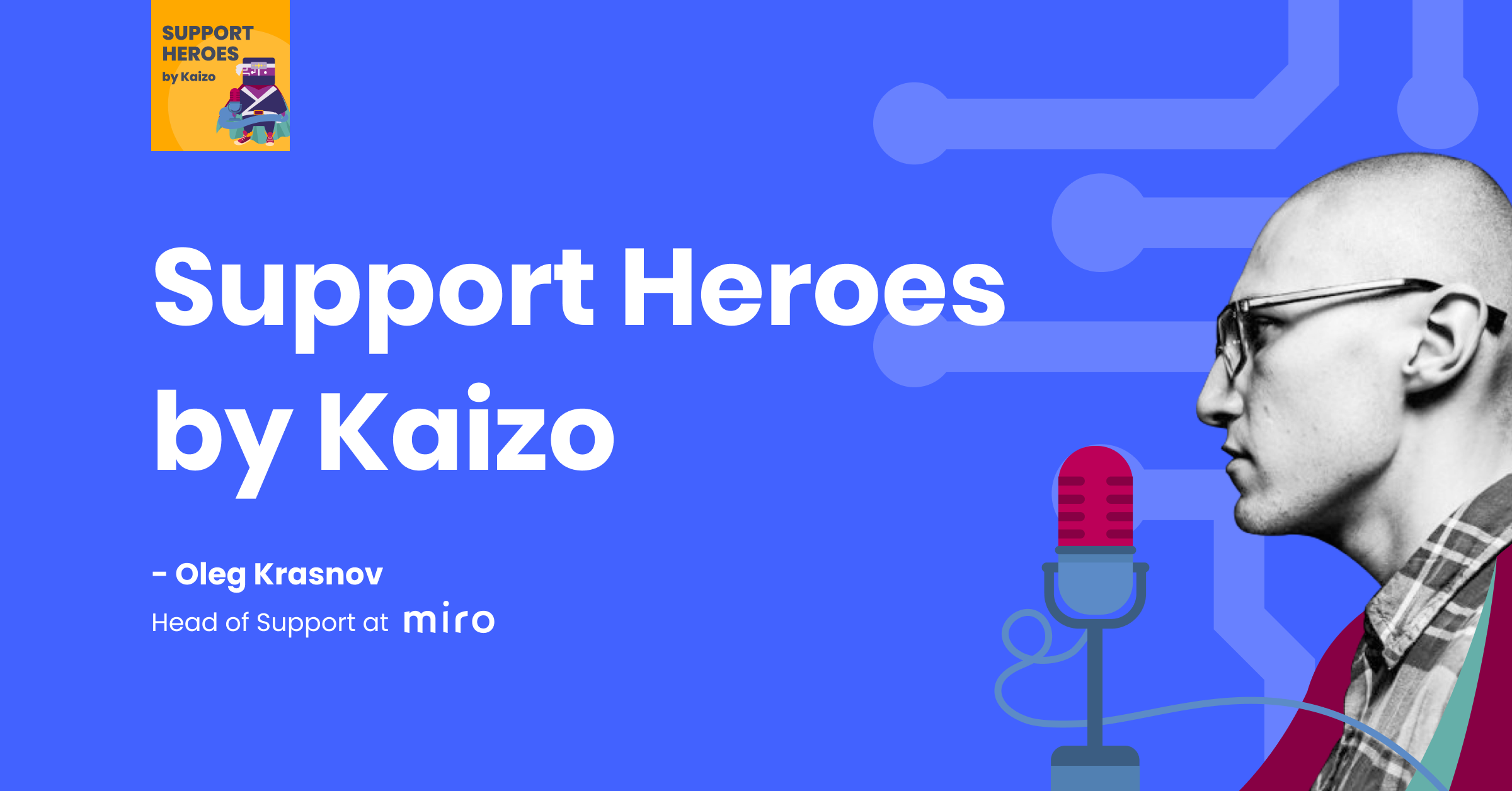Click ‘subscribe’ above to listen or download from Apple Podcast, Spotify, and Google Podcast
The fifth release of Support Heroes by Kaizo featured Oleg Krasnov – Head of Customer Support at Miro.
In this episode, Oleg shares his wealth of experience in hiring for and managing support teams. As well as providing actionable advice on how to deal with sudden, extreme increases in ticket inflow.
Key Takeaways:
1. Look for personalities & aspirations in interviews because motivated people can learn the skills.
2. Empathy + problem-solving skills = agent success. Having just one isn’t enough.
3.What to do in crunch time. Dealing with an insane increase in incoming ticket flow.
Look for personalities & aspirations in interviews because motivated people can learn the skills.
“If you are a really great specialist it doesn’t mean you’re a great person; but if you’re a great person, you can easily excel and be a great specialist. That’s why I’m looking for personalities rather than tech geeks” -addressing hiring for technical support roles.
This quote is pretty self-explanatory, however, how does one quantify what a great person is? And what personality traits correlate with this kind of self-motivated success?
“I don’t wanna have people in the team who don’t have a problem talking to customers. I want people who can’t live without helping other people.”
Oleg doesn’t look for profiles in his candidates. Sometimes the best candidates are the most unlikely people. It’s all about quantifying their motivation for applying to the job. The same motivation that will carry them to success when working in a role day-in, day-out.
“You just need people who are excited about the role and the company. When you can cross the aspiration of your potential employee with your own vision and mission, then you can have the greatest result.”
“As a manager, your own investment in hiring would be returned as less things to do as a manager as soon as you have this [aforementioned] employee”
Empathy + problem-solving skills = agent success. Having just one isn’t enough.
Oleg’s general approach is based on looking for two core traits in prospective employees…
“1. Empathy. I want to see people who are excited about helping people”
In order to identify this trait in people during an interview, Oleg asks his interviewees to present examples of situations where they helped others without being asked.
“These examples are very powerful…if you’re talking to a really empathetic person, this person will definitely share multiple examples in a matter of seconds”
Challenging these examples is also important to understand more about the factors that contributed to their empathetic response(s). Understanding whether these factors are, for example, intrinsic to the person or situational.
“2. Problem-solving mindset. This is complimentary to the empathy. If you have only one piece, it doesn’t really work.”
Having brilliant problem solvers that don’t want to help the customer isn’t desirable for support. When coming across such people within support, Oleg suggested or facilitated a move to technical or management roles that are non-customer-facing. Which benefited the support department and the employee themselves.
What to do in crunch time. Dealing with an insane increase in incoming ticket flow.
“On average we had 600-800 tickets a week..now we have 1600-2000. Miro [also] provides free educational licenses…before covid, we had 100 applications a month, now we have 2000-2500 applications A WEEK”
Miro’s activity and user-base exploded due to the pandemic. As such, Oleg and his team had to deal with these insane upticks in their ticket activity. How did they deal with this?
“[The educational license applications] are not something where you can see a decrease in quality, so we outsourced that”
Essentially, you have to segment your requests and figure out whether there are easy tasks you can operationalise or outsource entirely in order to relieve the load on the support team and allow them to focus on the more complex tickets.
“If we have an uplift in the overall workload, I would zoom out a bit and step back to understand what is actually driving those changes.”
“The whole approach of expanding the team according to the overall growth does really make sense if it’s the only tool.”
It’s all about understanding the ‘why’ and the ‘what’. If there’s a huge influx of tickets about a certain issue, support must affect the product roadmap- sharing insights on what obstacles customers are facing.
“I think the most powerful thing that any customer support team can do, is actually shaping the product roadmap”
“As support leaders, we need to make sure we have really great relationships with the engineering and product functions to be able to impact the roadmap and make sure the whole thing makes sense”
In this regard, constantly growing the support team in response to constant growth in tickets isn’t solving the issue…it’s creating greater costs on top of product, marketing, sales related mistakes, that still aren’t getting solved.
“When you’re a product or marketing manager, you’re working in somewhat of a vacuum, I would say…when you’re dealing with customer support requests, you’re dealing with the most candid feedback you can ever get”
So use that feedback Support Heroes! Make that feedback and your department an asset to your company. You’ll save money on hiring as well as make your product and/or service better for your customers.


